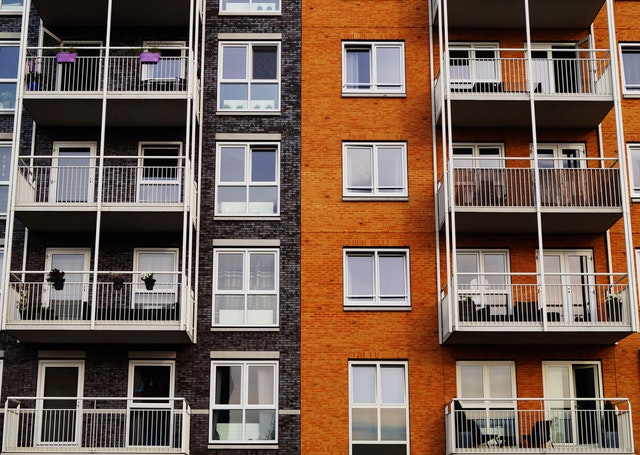I actually did not say that property rights are a moral right. I say that people have a moral right to be given the right to access property on a somewhat fair basis. In practice, I think that the system of property rights we have now needs to be (and, at least roughly, is) justified by producing practical benefits from encouraging and permitting economic development of property. But I definitely don’t believe that absolute ownership of property is a moral absolute like an ancap would.
I think it’s nuts and actually a bit alarming to say that rights come from “the people,” but it’s also not the case that (moral) rights come from god or even that they objectively exist. Legal rights come from the legal system, but moral value derives from the inherent moral standing of the person who has them.
The practical question is what kind of legal rights and political procedures you have to live in the world while generally respecting the moral entitlements of people, which is challenging even in theory, and much harder in the real world. You’re obviously correct that it’s practically (and actually logically) impossible to run a complicated system on unanimous consent. I’m not sure exactly what global democratic totalitarianism is, but I’m going to tentatively say I oppose it. In fact, I think it’s very difficult in the real world to realize a system that comes even vaguely close to the theoretical demands of justice.
So, I agree with you that you need to craft your property rights and political system to practically do the best you can to respect moral rights while accommodating the real world. With respect to favoring insiders vs outsiders, it’s obviously true that insiders have their own stake in the system they’re insiders of. Should that entitle them to special moral consideration relative to an outsider who wants to acquire a similar stake? Not generally. I think any special practical consideration would be based on one of two practical arguments.* First, maybe the insider did a bunch of stuff you want to encourage to get their stake. Maybe they bought a house and planted some trees or were active in the community, and it’s wrong to yank away the benefits they got from doing that, because then no one makes those investments. That’s a reasonable enough theory, but doesn’t cover creating special rent control rights for existing residents, since they definitionally didn’t need them to get to where they are now. Second, even if you’re not relying on incentives, maybe there’s some kind of community that’s inconsistent with free entry. (This is specifically what immigration restrictionists are saying) If that community is really valuable, then perhaps it’s a fair trade to preserve it at the cost of restricting outsider access, because the very nature of letting outsiders in will destroy the community. I think this argument is conceptually valid, but deserving of extreme skepticism. For example, I think it’s likely that if 300 million foreigners moved to the U.S. in the next three years, there is a real chance that it would destroy the valuable elements of the American political and economic system, and that would be bad for everyone and should not be permitted. But because this argument is so nakedly self-interested (we, the insiders, are deciding that it is just to restrict the rights of outsiders because the benefits to the insiders outweigh the harms to the outsiders), I think there’s ought to be a pretty heavy burden of proof against it. Generally, you should be aiming to “red-line” your level of openness really close to the point where openness becomes unworkable. Without that presumption, because the interests of immigrants get zero weight in the political system, you get self-interest masquerading as principle. (Effectively, proposals to shift zoning responsibility to higher political levels change who counts as an insider, with the expectation that a less insular group will make a different judgment about the costs and benefits.)
In the actual world, there’s no realistic argument that more heavily developed cities are inconsistent with the kind of community anyone really wants, certainly not anyone of your political persuasions. Vibrant, culturally diverse, transit-oriented, green communities thrive on density. The societies you want to emulate actually work at (and, I would argue, depend on) a much higher level of population density.
So to summarize, I really don’t think there’s any merit in gesturing to local democratic governance as a justification for NIMBYish preferences. In particular, it doesn’t get around the moral obligation to respect the interests of outsiders to the relevant democratic government, even if there are practical reasons to treat insiders and outsiders differently. I’m also skeptical that there are any good practical arguments for the anti-development outcomes we see.
*There’s also a harm-reduction case for rent control, which is that it sucks for someone to have to move because their rent goes up, or even to have to pay a lot more in rent. So just like you can support publicly provided unemployment insurance or health insurance as a safety net, rent control is kind of like rent insurance. This is fine in theory, but not good policy, because rent control disincentives investment in housing, which creates housing scarcity, which creates most of the real problems. It’s not actually that bad to have to move every few years, what’s bad is if housing stops being available in the area you want to live in at a price you can afford. That’s why more development + rent control makes some sense as a political compromise to chip away at housing scarcity while providing some benefits to sympathetic insiders. But rent control alone makes the housing problem worse for most people.
